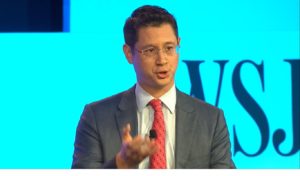 Zhao Ziyang
Zhao Ziyang
refused to condone the crackdown on the unrest in June 1989, was put under house arrest till he died in January 2005. Because of the solid censorship, most young people might not even know his name.
Now, with help of a longstanding friend, a book about his life and thoughts has been publishing in Hong Kong.
Mark Oneill reviews the book for Asia Sentinel. While not everybody agrees with the way Mark connects the lack of democracy Zhao-style with China's current development (what a great stuff internet conversations are), it gives a nice overview of the issue.
“For China to modernize, it must move toward democratic politics,” Zhao says in a 1994 conversation recorded in the book. “This gives me great inspiration. In the East, be it Taiwan or South Korea, countries have moved from dictatorships to parliamentary democracy and many parties. This is a trend which is irresistible and no country can be an exception.”
It is the first time since the party was founded in 1921 that a senior leader has given an honest, uncensored account of his life and opinions. It is the more stunning because, unlike all but one previous party general-secretary dismissed from office, Zhao refused to recant and admit his mistakes, which is why his successors detained him at his courtyard home in Beijing and cut him off from the world.
The book is not only not available in China yet (it will be soon on the black market though), but also not at Amazon. Therefore, a few other books:




